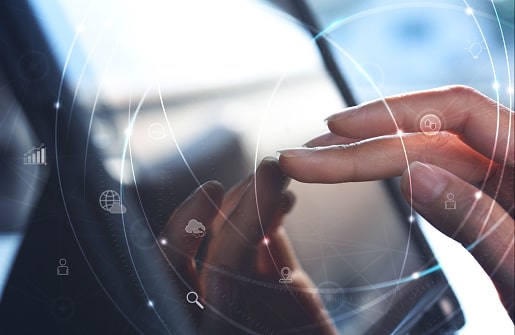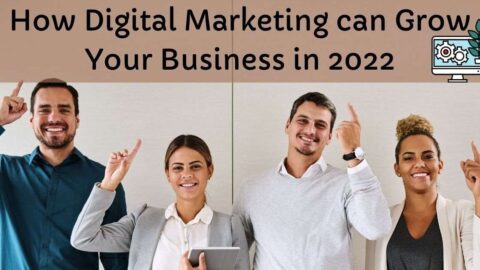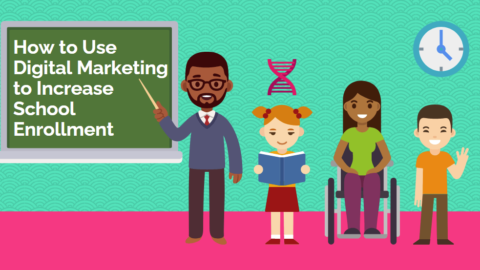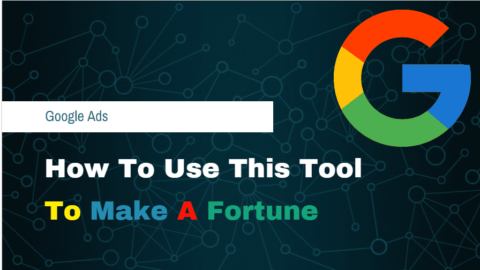The Past, Present and Future of Online Advertising
Advertising can be a job, a necessity, or a nuisance to different people. Regardless of your viewpoint, what’s expected is the milestones in advertising. Now, business owners are trying to decide what’s best to keep them ahead, mainly between performance marketing vs. digital marketing. While these two modes of marketing might seem the same, the difference lies in several key points. A key difference, however, is digital marketing involves all the current digital forms of communication for marketing, while performance marketing seeks to analyze the implementation and results. Generally, they are both interconnected and highly beneficial to a business. But this wasn’t always the case. Let’s take a look at the transition of online advertising, including a sneak peek of what the future holds.
Table of Contents
But first;
What’s Online Advertising?
Also called digital marketing, this is any form of internet-based marketing message. The message can appear on search engines, social media platforms, and emails.
Online advertising features a wide range of avenues, with new ones popping up daily. Though some ads are less common, most are those we come across regularly.
Even so, it’s true that the online advertising platforms in the past are not what we have or are expected to be in the future.
Keep reading for step-by-step online advertising growth.
The Past of Online Advertising
The debut of digital marketing occurred from 1980 to the 1990s. At that time, digital marketing was just the promotion of goods and services over the web.
There were two leading platforms of past online advertising.
1. Search Engine and Social Media
Google launched in 1998, and it’s currently the most prominent search engine on the web. In the mid-2000s, Google massively changed the behavior of customers, playing a significant role in creating the idea of digital marketing. Customers then started asking questions about particular products online, which left the advertiser lost since they couldn’t understand anything.
After a while, social media arrived. Myspace was the first social media platform, followed by Facebook. Eventually, only the giant companies knew how to use these platforms as an online marketing strategy.
Lastly, the cookie arrived, creating significant impacts in the digital marketing scene. Marketers use cookies to track customers’ browsing behavior, frequent user patterns, and interests. This way, forming different marketing strategies for particular audiences was easy.
2. Big Data Trends and Mobile Industry
Thanks to data, it’s easy to monitor people’s behavioral patterns and the latest trends, causing the success of marketing campaigns.
After launching the BlackBerry mobile in 2003, people started to email, browse, call and text easily. But, the initial plan of BlackBerry manufacture was strictly for business.
Then, in 2007 smartphones overflowed, suiting every type of user. This made the world at the fingertips of smartphone users effortlessly browsing any content.
The Present of Online Advertising
The influence of the internet in the early 2000s caused the rise of digital marketing. Business owners started reaching their target audiences easily online.
Take a look at the foundational concepts of present digital marketing;
1. Search Engine Optimization (SEO)
Search Engine Optimization involves enhancing the visibility of your website in the search engine’s organic results.
The best way to drive traffic to your site is by making your site rank higher-preferably in the top 10 pages. Still, organic or unpaid traffic gives businesses the best clicks and conversion rates.
That’s it’s essential to use different and effective SEO tools and techniques to attract organic traffic. Such tools include keywords and backlinks.
2. Search Engine Marketing (SEM)
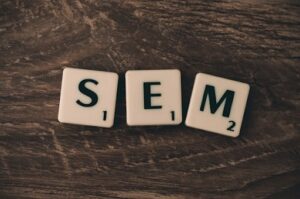
SEM and SEO have similar intentions of driving traffic to your website. However, the difference is that SEM utilizes paid services like Google Ads, while SEO is organic or free.
Search Engine Marketing uses paid and organic search results to grasp the attention of potential consumers. Pay-Per-Click is an example of SEM, where the advertiser pays a certain fee whenever the site is clicked.
Aside from driving traffic, SEM is also excellent in improving the overall ROI.
3. Social Media Marketing
Every year, the role of Media in Digital Marketing grows, becoming more relevant and reliable. According to a study, about 72% of adults are on social media, making it an excellent avenue for your potential customers.
Social media online advertising consists of several platforms, with new ones emerging every time. However, the challenge comes in finding the ideal platform with most of your target audience. This way, you can quickly build brand awareness and a strong foundation and boost sales.
4. Content Marketing
This digital marketing tactic involves creating and promoting unique, relevant, valuable, and consistent content on your website.
This content aims to reach your target audience through blogs, videos, case studies, white papers, and social posts. With content marketing, engaging your target audience boosts your online presence and visibility.
5. Web Design
Do you have a website for your business?
A website is crucial for ensuring an effective digital marketing strategy. Aside from owning a business website, the design is also essential to consider.
Your website has to be appealing and well-optimized to convert the traffic on your website to sales. It needs to be responsive and mobile-friendly to help the consumer access and navigate through products using different devices whenever easily.
The Future of Online Advertising
Nobody can tell what the future holds for sure. However, with the existing online advertising trends, it’s easy to have a concept of future avenues.
According to experts in online advertising, here are the most probable happenings for the future:
1. Virtual Reality

One day, this technological advancement will reach all parts of the world. Virtual reality utilizes computer modeling and simulation to enable interaction between a person and an artificial three-dimensional visual.
Virtual reality allows companies to seal the gap between action and experience quickly. This way, you can use it to provide a digital experience in the physical realm.
This digital marketing avenue for the future will enable sellers to market their products more realistically.
2. Live Streaming
A business will broadcast its products in live footage to its target audience with live streaming.
Live streaming allows you to host a live event even with guests or create a tutorial to market your business for online advertising as well.
Videos are a great and entertaining way for the audience to engage with your content, and live streaming allows even commenting in real time.
3. Voice Search Optimization
Siri and Alexa are taking over the voice search automation industry. People now and in the future will find it easy to search for products and services using their voice online.
You speak on your device rather than typing. As a digital marketing strategy, websites should now come with voice search optimization for quick navigation and search.
4. The Dominance of Artificial Intelligence
The present has experienced several modes of artificial intelligence. But there’s no doubt that AI is expected to dominate the future, making life easier in many ways.
Most importantly, you should expect AI to take over advertising spaces, create and promote ads, and deal with customers.
5. Automated Influencer Marketing
The current influencer marketing strategy is experiencing the challenge of finding the best person to be your brand’s voice.
You’ll find that the most popular influencers are working for several brands simultaneously, which can cause a significant conflict of interest.
Thanks to changing times, the future holds automated influencer marketing. The AI in this category will make it easy to find the ideal automatic influencer to carry your brand’s mantle to the world.
Parting Shot on Online Advertising
Even when the future comes, digital marketing will still be experiencing transitions. This means it’s a moving bus with no definite destination that keeps dropping and picking new strategies along the way.
As a business, you should strive to remain on board to avoid losing relevance.
Dan has hands-on experience in writing on cybersecurity and digital marketing since 2007. He has been building teams and coaching others to foster innovation and solve real-time problems. Dan also enjoys photography and traveling.

